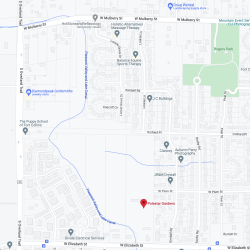Communities of Learning
by Michael Gornik
At 5’7” tall, Spud Webb was one of the shortest players ever to play in the NBA. Despite his height, he could easily dunk and in fact won the NBA Slam Dunk Contest in 1986. He was barely a teenager when he first learned to dunk and only 5’3” tall. One day an interviewer asked him: ‘Everyone must have been amazed when they first saw you dunk! “Are you kidding?” was his reply. “in my neighborhood, everyone said: “It’s about time.”
The influence of the community we live in can determine, to an amazing degree, the trajectory of our lives. In theory, we all have free will, but the reality is that most of us will find it difficult if not impossible to exercise it much beyond the limitations, expectations and values of our community and society. Since ‘environment is stronger than will power’ as Yogananda often said, it is perhaps the wisest use of our free will to choose those environmental influences that align with our values, hopes and dreams!
The first time I had the opportunity to participate in an all day meditation ( a holiday tradition begun by Yogananda many years ago and now practiced around the world by many communities), I had only been meditating for a short time – I was understandably intimidated by the prospect of 8 hours of sitting still. Nevertheless, the power of the group’s intention was strong – it was a deep experience and became a natural and uplifting part of the holidays for me ever since. This, for me, important experience was far beyond my reach without this environmental support.
‘Communities of Learning’ that value and promote a culture of holistic education – the balanced development of body, mind and soul – provide the best possible environment for each of us to reach our potential. Education is not just a solitary pursuit; it flourishes within the nurturing embrace of others who share their ideas, insights, and challenges along their own path of growth and understanding.
Mentors, role models, and deep friendship play an invaluable role in life-long learning. In intentional communities, we are provided the access to others that allows these mutually uplifting and often life-long connections to spontaneously spring up. We are also given a front row seat to observe the great diversity in ways of being human. We can emulate the strengths of others and learn from their mistakes; in short, we share our life’s path with each other that are mutually helpful and uplifting.





